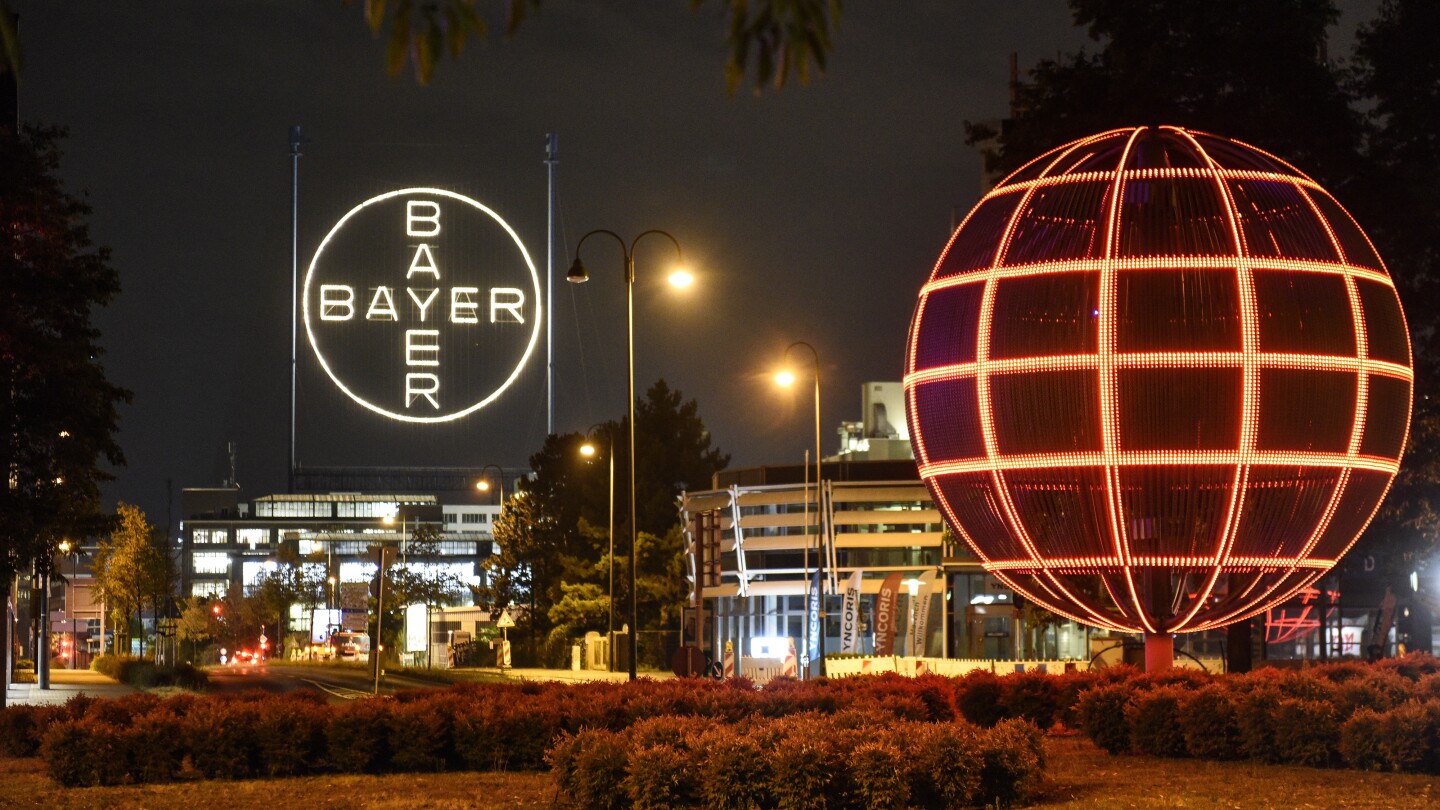LEVERKUSEN, Germany (AP) — Manchester, Barcelona, Milan, Leverkusen?
An often-overlooked, small German city dominated by the pharmaceuticals industry is making an unlikely case to be considered one of Europe’s soccer capitals this season because of Bayer Leverkusen’s historic unbeaten streak.
Coached by former Champions League and World Cup winner Xabi Alonso, the team finished an entire German Bundesliga season without a single loss, the first ever to do so.
The team can finish the season with three trophies if it beats Atalanta in the Europa League final Wednesday and Kaiserslautern in the German Cup final three days later.
It’s a big step up for a team that was until recently known as German soccer’s perennial runner-up after placing second in the Bundesliga five times.
It’s also a source of pride for this low-rise city of 167,000, which grew up around the factories of the pharmaceuticals giant Bayer – best known for Aspirin and Alka-Seltzer – and has little to draw tourists besides its internationally famed soccer club.
“It’s definitely very important for how people identify,” Bayer Leverkusen fan Sebastian Thiel told The Associated Press ahead of the final league game of the season Saturday. “It makes the city special.”
Excluding the 30,000-capacity BayArena, Leverkusen is probably best known for a 51-meter-tall (56 yards) illuminated Bayer logo which shines over the city at night.
That logo, the “Bayer Cross”, is on the club’s badge, and inspired the club’s red-and-black cross design on its kit this season. At a German Cup semifinal game last month, fans even hoisted their own version over a banner depicting the city’s modest skyline to mark 90 years of what, for Leverkusen locals, is no ordinary billboard.
“The club, the company, and the city, they’re all connected,” Leverkusen sporting director Simon Rolfes said. “At the weekend, they are fans of football, but during the week they’re working for Bayer. Maybe it’s a special situation you will not find so often.”
For an industrial city, Leverkusen can be cosy — perhaps surprisingly so — with single-family houses and small apartment blocks backing onto a park that leads to the BayArena. “More beautiful than people think, but obviously shaped by the big cities around it,” Thiel said of his home town.
Leverkusen was named after the chemist Carl Leverkus, who built a dye factory in the village of Wiesdorf that was later taken over in 1891 by Bayer. Thirteen years later, workers from Bayer founded the sports club that would go on to become famous for soccer. It’s been in the top division since 1979, though it had to wait until this season to win its first Bundesliga title.
“The important thing in Leverkusen, besides the club, for sure is the company,” Leverkusen sporting director Simon Rolfes said. “This city is a bit built around the company and I think it’s really special that that so many people are working for Bayer, for the pharmaceutical company.”
Not everyone sees it that way. Many German soccer fans were delighted to see perennial league winner Bayern Munich beaten, but some are skeptical about the new champion’s close ties to Bayer. It’s one of two Bundesliga clubs with a formal exemption from so called 50+1 rules mandating control by fans. The other is Volkswagen-owned Wolfsburg.
Squeezed between the larger cities of Cologne and Duesseldorf, each with their own big clubs, Leverkusen’s fans are outnumbered by their local rivals, though the fanbase has expanded into nearby towns. The team’s heroics under Alonso are winning over more international fans, too.
The German league victory and the Europa League final have elevated Bayer Leverkusen’s profile in Europe. The last time Leverkusen played in the final of a European competition was the 2002 Champions League final, which it lost to Real Madrid. Before that, it won the 1988 UEFA Cup, the precursor to the Europa League.
While most of Europe’s top soccer clubs come from big cities such as Madrid, Barcelona, Milan and Paris, Leverkusen is not the only modestly sized place with a strong team. Its Europa League final opponent Atalanta is from Bergamo, population around 120,000, and 2021 winner Villarreal is from a Spanish city with only around 50,000 residents. French club Lens played in this season’s Champions League with a stadium capacity of 38,000 — more than the city’s population.
For now, Leverkusen’s locals are just enjoying the moment.
“We hoped and hoped and hoped, and it’s happened,” longtime fan and retired former Bayer employee Karl Wallner said.
___
AP Sports Writer Ciarán Fahey in Berlin contributed to this report.
___
AP soccer: https://apnews.com/hub/soccer

